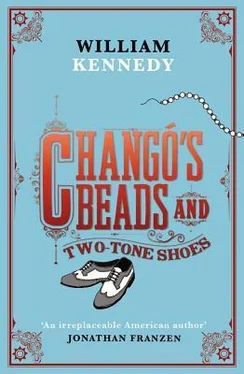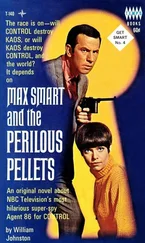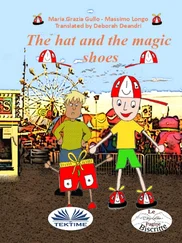At the table Martin said, “That was a marvelous performance. He doesn’t play like a dying man.”
“No, but he’s goin’,” Tremont said. “Got a couple of months, what I hear.”
Roy and Gloria left the table to talk to Cody, and Roy told him the playing was fantastic and the song was not bad, since it didn’t have any words. Cody gave him a triumphal smile and they shook hands. Gloria said they were going to feed Cody since he didn’t get any dinner. Quinn said he’d talk to the kitchen and get him dinner, but Gloria said he wants pizza, and Renata said, Daniel, no quieren comer. Renata told Gloria, “Don’t you stay out all night, you’re still convalescing.” Gloria said of course and kissed her aunt and made a kiss mouth at Quinn.
At the table Matt asked Tremont where he was staying tonight. “You still have that place you had with Mary?”
“I got it but I don’t go there anymore. Rats ate the bed.”
“You have money?”
“Dollar and a quarter.”
“That’s not even enough for a flop. Last night you slept on that stoop.”
“Won’t do that again.”
“I thought tonight you’d be in the hospital, or in jail.”
“Missed out on both,” Tremont said.
“So where can you stay?”
“I got friends. Mighta stayed with Rosie but they’re knockin’ down her house. Maybe the mission, if they got a bed, maybe the bus station. I’ll be all right. It’s warm, if it don’t rain.”
Quinn and Renata came back to the table on that line.
“What about the Corine Hotel, you stayed there,” Quinn said.
“They make you pay.”
“How much, ten, fifteen?”
“Like twenty.”
“If you’re in the Corine a few days, a week, can you get yourself together? Claudia wants you in rehab and that’s a good idea.”
“Oh, yeah. I’m good. Corine, rehab, I need that.”
The concert crowd was thinning out, George and Vivian came back to the table and Quinn said quietly to Matt, “I can’t take him, I’ve got a carful. Can you grab a cab and get him installed? I’ll give you two hundred, get him a room for a week and give him maybe twenty for walking-around money. Hold on to the rest, or maybe you need it yourself.”
“I need it. I have a dollar and a quarter less than Tremont. I can’t pay for the room I rented here for tonight.”
“All right I’ll cover that and you keep the change of the cash. You’re really not going back to campus tonight?”
“Really am not.”
“Is this how you abdicate sainthood? Don’t you have to turn in your robe?”
“I’ll send it to the cleaners. I’ll go through the tribunals, whatever is necessary. But I’m history.”
“You’re the life and death of the world in twenty-five words or less.”
“Less. What’s all this cash? Where did you get money to burn?”
“I hit the number, but I left the envelope in the car. I’ll get it and meet you at the hotel’s Eagle Street entrance in ten minutes.”
Quinn told Renata about the money and where he was meeting Matt.
“You didn’t want the money,” she said, “but now you’re Santa Claus with it.”
“Consider it short-term borrowing. Max can take me as a tax deduction.”
“It’s not Max’s money. It’s mine, and yours.”
“Not yet.”
Quinn was now acutely conscious of the precise amount of money in his trunk. Corporations rise and fall on less. Max couldn’t need that much to get into Cuba. He’s got fifty-plus in his briefcase; send him another hundred and that’s big money. Fidel will let him in for that. Won’t he?
For a hundred, yes, Quinn decided. He would hold that much for pickup whenever by Max or his messenger. He’d stash it, safe deposit, maybe; that amount was finessable. Also he’d keep Renata’s fifty. But the rest was too much — seven hundred and fifty thousand and change. Quinn needed to give that to somebody, someplace, where it would do some good.
This was precipitous, giving Max’s cash away even before he’s in Canada; but depriving him of three quarters of a million was a satisfying prospect. Would Max react like most humans, with rage and revenge against Quinn? No. He’s dying, and too blasé. Money never meant much to him. It was only a means of moving with the high life on whose fringe he was always scrambling. All right, maybe a hundred isn’t enough; give him back Renata’s fifty. She doesn’t need it. She only wants it. It was fast money as it came to Max; if it vanishes it’s fast in the other direction.
Give the money to Matt and let him found a new order: the Church of the Benevolent Dollar. He’d give it all away in six months. And you’re ready to give it away in three hours, Quinn.
Give it to Tremont? Instant disaster. The police would pull him in and do what they do so well with drug money: make it disappear.
Claudia and Better Streets? She’d spread it around, also buy a new house, new furniture, and everybody would see her sudden wealth as drug-related, which it would be.
Give it to the Brothers? That would really contaminate them — just what the machine wants. They’d sink forever as dealers.
Leave it on the street in front of Hapsy’s and let it be a random find. If Trixie got to it first it would go into her bank vault and seduce her into early retiremant, and Albany would never see a nickel.
Keep it yourself, Quinn, have a broker invest it, obliquely, even secretly; become, simultaneously, a philanthropist and a financial criminal. No. And no hiding it in walls, or banks, or underground, except for the hundred. Even that’s a major risk. And, hey, your fingerprints are all over the cash and the suitcase; so are Max’s, and who knows who else’s? Face it: it’s a goddamn worthless treasure.
“Daniel,” Martin said, standing up from his chair, surveying the racially mixed stragglers, “what happened to this hotel? I’m surprised they booked this party. I’ve been coming here since they opened in 1926 and they always barred Negroes. They rejected Marian Anderson and Paul Robeson.”
“Satchmo too,” Quinn said. “I interviewed him in 1956 at the Kenmore when he was here to play the Palace. He was a world celebrity but no major hotel in this town would give him a room. Mixed parties here now? I suppose it’s token time. But upstairs is still lily-white.”

Quinn parked in front of Vivian’s flat and put on his blinkers, turned off the car. George and Vivian were in the backseat and he said, “Pop, we’re here.”
“Where?”
“Vivian’s house.”
“Vivian? Vivian who?”
“Vivian me,” Vivian said, and she grabbed George’s face in her fingers and turned it close to her own. “Your date for the evening, one of your old girlfriends. It’s time to go home, George.”
“Then let’s go.”
“Yes, let’s.”
“Where do we go?”
“Here.”
“Here? Where are we?”
“Columbia Street. The Court House is up a block, the Kenmore’s down a block, and I live there, right up that stoop.”
“God bless you. Columbia Street is a wonderful street. I was born on this street.”
“Say good night to Vivian, Pop,” Quinn said.
“Good night, Vivian.”
“Good night, George. I had a lovely time.”
“That’s wonderful.”
Quinn got out of the car and opened Vivian’s door and took her hand. He walked behind her up the stairs. She found her keys.
“He was on his way to Beauman’s dance hall when I met him near the Court House,” she said. “Beauman’s closed years ago. We both went there when we were young and dancing our way toward romance, maybe even marriage. I could see George was young again and a bit of the sheik, like the old days. But he had that cracked memory. Then at the Kenmore he was hit on the head by flying glass and you should’ve heard him talk.”
Читать дальше













